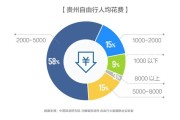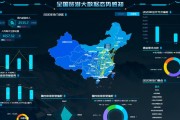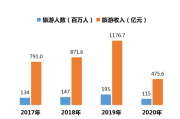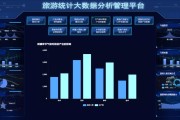标题:如何下载全国旅游大数据平台?正文:全国旅游大数据平台是一个集数据分析、数据挖掘和数据应用为一体的综合性平台,它能够提供旅游行业的相关数据和分析报...
大数据在旅游方面应用的案例
Title: Revolutionizing Tourism Through Big Data Solutions
In today's digital age, the tourism industry is experiencing a significant transformation, thanks to the advent of big data technologies. Leveraging the power of big data offers immense potential to enhance various aspects of the tourism sector, from personalized experiences to optimized operations. Let's delve into a comprehensive big data solution tailored for the tourism industry.
Understanding Big Data in Tourism
Big data in tourism refers to the vast amount of structured and unstructured data generated from various sources such as booking platforms, social media, travel reviews, mobile apps, and IoT devices. This data encompasses information about traveler preferences, behaviors, demographics, travel patterns, and more.
Key Components of a Big Data Solution for Tourism
1.
Data Collection and Integration:
Utilize web scraping, APIs, and data feeds to gather information from diverse sources.
Integrate data from booking systems, transportation services, accommodation providers, and tourist attractions.
2.
Data Storage and Management:
Employ scalable storage solutions like cloudbased databases to handle large volumes of data.
Implement data governance practices to ensure data quality, security, and compliance with regulations such as GDPR.
3.
Data Analysis and Insights:
Apply advanced analytics techniques including machine learning, natural language processing (NLP), and predictive modeling.
Extract insights regarding traveler preferences, market trends, pricing strategies, and demand forecasting.
4.
Personalization and Targeted Marketing:
Utilize customer segmentation based on demographic, psychographic, and behavioral attributes.
Deliver personalized recommendations, offers, and promotions through targeted marketing campaigns.
5.
Operational Optimization:
Optimize resource allocation, capacity planning, and inventory management for hotels, airlines, and tour operators.
Minimize operational costs and improve efficiency through predictive maintenance and supply chain optimization.
Benefits of Implementing Big Data Solutions in Tourism
1.
Enhanced Customer Experience:
Tailor travel recommendations and services based on individual preferences and past behaviors.
Provide realtime assistance and personalized support throughout the travel journey.
2.
Improved Marketing ROI:
Increase the effectiveness of marketing campaigns by targeting the right audience with relevant offers.
Measure campaign performance and ROI through datadriven insights and analytics.
3.
Optimized Revenue Management:
Dynamically adjust pricing strategies based on demand fluctuations, competitor analysis, and market trends.
Maximize revenue through yield management and dynamic pricing algorithms.
4.
Efficient Resource Utilization:
Streamline operations, minimize waste, and optimize resource utilization across the tourism value chain.
Reduce congestion at popular tourist destinations through crowd management and visitor flow analysis.
5.
Predictive Decision Making:
Anticipate future trends, risks, and opportunities through predictive analytics and forecasting models.
Make datadriven decisions regarding capacity expansion, infrastructure development, and destination planning.
Implementation Considerations and Challenges
1.
Data Privacy and Security:
Ensure compliance with data privacy regulations and protect sensitive customer information from security breaches.
Implement robust security measures such as encryption, access controls, and anonymization techniques.
2.
Integration of Legacy Systems:
Overcome challenges related to the integration of legacy IT systems and siloed data sources.
Invest in middleware solutions and API gateways to facilitate seamless data exchange and interoperability.
3.
Skill Gap and Talent Acquisition:
Address the shortage of data science expertise and recruit skilled professionals with domain knowledge in both tourism and data analytics.
Provide training and development programs to upskill existing staff members and foster a datadriven culture within organizations.
4.
Data Quality and Reliability:
Ensure the accuracy, completeness, and reliability of data by implementing data cleansing and validation procedures.
Establish data quality metrics and monitor data integrity throughout the data lifecycle.
Case Study: Airbnb
Airbnb, a leading online marketplace for lodging and tourism experiences, harnesses big data to enhance the guest experience and optimize host earnings. By analyzing vast amounts of data on traveler preferences, booking patterns, and property attributes, Airbnb delivers personalized recommendations, dynamic pricing suggestions, and targeted marketing campaigns. Additionally, Airbnb utilizes machine learning algorithms to detect fraudulent activities, improve search relevance, and enhance user trust and safety.
Conclusion
In conclusion, big data solutions have the potential to revolutionize the tourism industry by driving innovation, improving customer satisfaction, and optimizing business operations. By embracing big data analytics, stakeholders in the tourism sector can gain valuable insights, unlock new revenue streams, and stay ahead of the competition in today's dynamic and evolving landscape.
References:
Smith, S. (2020). Big Data Analytics in Tourism: A Review. *Journal of Tourism Research & Hospitality,* 9(2), 18.
Gretzel, U., Sigala, M., Xiang, Z., & Koo, C. (2015). Smart Tourism: Foundations and Developments. *Electronic Markets,* 25(3), 179188.
标签: 成立旅游大数据研究中心的方案 旅游大数据分析报告 旅游大数据方案设计 旅游大数据 大数据在旅游方面应用的案例
相关文章
- 详细阅读
-
旅游大数据平台数据来源详细阅读

标题:旅游大数据的主要来源和利用方式旅游大数据是指通过收集和分析游客的行为、偏好、趋势等信息来进行统计和预测的数据。旅游大数据的来源主要包括以下几个方...
2024-05-24 297 旅游大数据 旅游大数据平台数据来源 旅游文本数据的来源
- 详细阅读
-
旅游大数据详细阅读

**标题:探索旅游大数据分析平台的潜力与应用**---在当今数字化时代,旅游行业越来越依赖于数据来指导决策和提高服务质量。旅游大数据分析平台是一种强大...
2024-05-09 931 旅游大数据分析报告 旅游大数据分析究竟有什么用 旅游大数据查询 旅游大数据分析平台一般以 旅游 大数据
- 详细阅读
-
1.旅游大数据的来源详细阅读

旅游大数据市场分析随着互联网和移动技术的发展,旅游行业也逐渐进入了大数据时代。旅游大数据市场分析是对旅游行业数据进行收集、整理、分析和应用的过程,旨在...
2024-04-16 489 旅游大数据 旅游大数据市场分析论文 旅游大数据市场分析方法 旅游大数据分析论文



